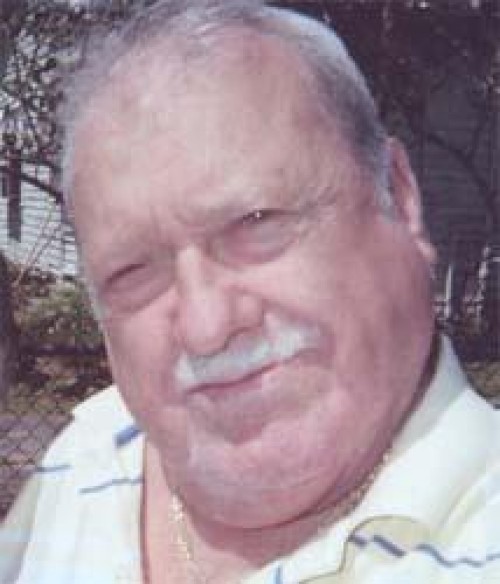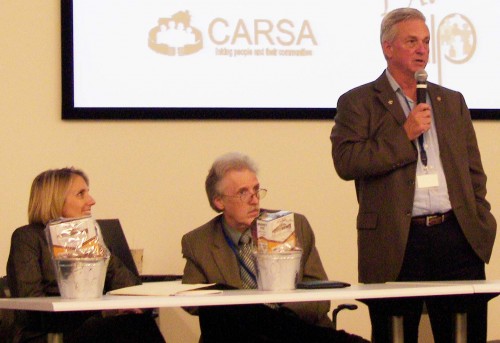
Mr. Earl Ray "Sip" Mire
November 13, 2009
Mr. Mark Anthony Voisin
November 17, 2009The Louisiana Association of Independent Providers, a trade group of caregivers for the developmentally disabled and elderly, held a legislative panel last week in Schriever to push for more funding and privatization of nursing homes and developmental resource centers.
The event was hosted by Lafourche Arc, which specializes in community homes for the developmentally disabled. Executives of about 40 independent care providers as well as several state representatives, and Thibodaux Mayor Charles Caillouet attended the conference at the BP Operational Learning Center. The group also held a “Day of Sharing” Friday to discuss trade practices.
Both the private and public sector in this field suffered budget cuts last year, and with the state’s Medicaid reimbursement ratio changing from 80/20 to 63/37, next year’s budget cuts are likely to be even worse. The state Department of Health and Hospitals, which funds providers like the LAIPA, is especially susceptible to cuts because it is one of only two agencies whose budget can be cut by more than 1 percent.
However, private care providers in Louisiana believe they can help the state reform health care and save money by further privatizing care for their demographic.
“It costs the state about $100,000 per person per year more money to serve the same type of individual that we can serve within the community,” said Kyle Soignet, the training coordinator for Lafourche Arc.
Kathy Cliebert, the assistant secretary of the state’s Office for Citizens with Developmental Disabilities, verified that figure, and said it came from her office.
“The state-operated facilities are costing an average of $173,000 (per person), and at the private facilities, their high level costs are $70,000,” and may go lower, Cliebert said.
The OCDD directly supervises state-run facilities, and oversees the private sector as well.
The LAIPA also submitted a 25-page “white paper” on ways the state could save money to the Governor’s Commission on Streamlining Government in hopes of affecting the health care reform they feel is necessary.
Dianne Baham, president of the LAIPA, said, “We’re constantly on a roller coaster ride with the state with money.
“We do have a problem with a shrinking budget and a growing number of people to serve, but we’re trying to bring solutions, and we’re working very closely with the streamlining commission.”
Some in the industry saw the streamlining commission as an opportunity not only stave off further budget cuts, but also to bring more people into cost-effective, community-based care.
Soignet of Lafourche Arc said, “We had worked on the paper for months and then we found out that the streamlining commission was being put together by the governor and we thought, ‘Wow! That’s the perfect audience for this paper’ and hopefully the governor will hear us.”
Part of the problem, according to George Stack, executive director of Lafourche Arc, is that state operated facilities have a higher pay scale and a higher level of administrative costs. Stack believes that the private sector can help the state become more efficient.
Stack said, “There are things that the state of Louisiana could do with their institutional programs and privatizing services, like closing down some of their institutions and consolidate others, where they would keep open about 3 of their facilities.”
Cliebert, of OCDD, generally agreed with LAIPA’s white paper, and said that they have already privatized their residential services in New Orleans and looking into closing and consolidating some facilities.
“Those are going to be very controversial in the future,” she said, adding, “but if you really want to rebalance our systems, we’re going to have to move to do some of those things.”
Closing state facilities would be politically difficult because it would force people out of better paying state jobs and into fewer jobs in the private sector, or unemployment.
It would also force residents of developmental resource centers out of the home and routine that they have called home for years or even decades. Consolidation is controversial because it may force families to drive much longer distances to see their family members.
In spite of the cost savings in the private sector, most agree that there are people who need an institutional level of care, even at a higher cost.
“We’re not anti-institution,” said Baham. “There is a place for some of our severely profound people that are medically fragile. It’s my opinion that they are best served in that kind of a medical environment. They need that kind of care.”
The LAIPA and their white paper seem to have the attention of at least some state legislators and they are hopeful that they can bring about health care reform in their industry.
Rep. Dee Richard (I), who serves Lafourche Parish, said, “they have some wonderful ideas and they ought to know because they are the people that are providing these services themselves.” Richard has a brother that is served by Lafourche Arc who appeared at the conference.
“To me they can do a better job then the state’s doing,” said Richard, who cited the progress his brother, Jim, has made since transferring from a state home to a privately-run community home.
Joe Harrisson, a Republican representative of Louisiana’s 51st, said, “The things that they say are correct,” but noted the importance of making the right decision for family members.
“The hardest issue that anyone has to make as a family person is putting a parent in a nursing home or putting a child in an institution,” he said “because that’s something that effects your whole life and it something that stays in your mind every day.”
Harrison also believed that there was some hope of the LAIPA in swaying the legislature.
“I think that what they need to do is show that it’s better to have that person, for their state of mind and for the things that you can offer to them, to keep them in their own homes, and to do the things that they can do to assist and bring about a better quality of life,” he explained.
Chris Pilley, the executive director of an industry trade group called Carsa, and former secretary of the Department of Health and Hospitals, agreed that privatization would be the best way to save money, but said that it would be difficult to do.
“There’s a human element to be considered too,” said Pilley. “I mean you’ve got parents whose children have been in those facilities for years. They feel safe and secure with their future with them there. So nobody wants to say, ‘Sorry, you have to move.’ But I think if we keep working to convince people we can get this done and save a lot of money.”
Kathy Cliebert, right, and Hugh Lee, center listen to state Rep. Joe Harrison (R) speak at the Louisiana Alliance of Independent Providers legislative panel. The group met to discuss issues facing the region’s developmentally disabled and elderly. * Photo by KEYON K. JEFF










